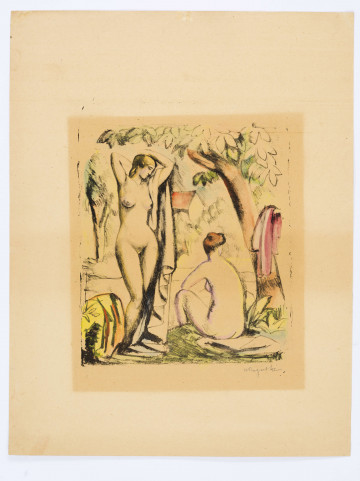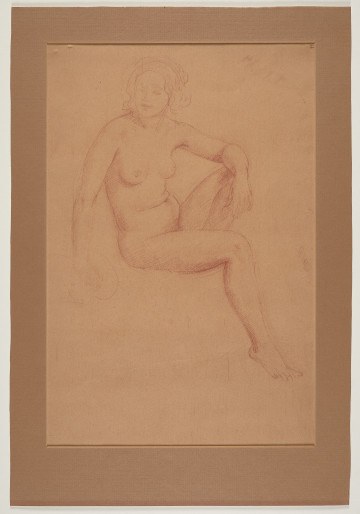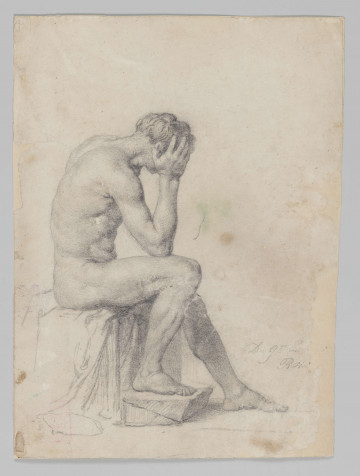
Bathers
1920s
National Museum in Lublin
Part of the collection: European classics of modernity
Between 1892 and 1896, Jan Szczepkowski attended the Wood Industry School in Zakopane and then enrolled at the School of Fine Arts in Kraków. By 1900, he had visited the studios of Alfred Daun, Konstanty Laszczka and Jacek Malczewski there. In the years 1904-1907, he stayed, with several breaks, in Paris, becoming acquainted with the works of Auguste Rodin and Antoine Bourdelle. The first stage of his work, which fell from 1900 to 1914, was marked by trends common in two societies - the Polish Applied Arts Society and the Polish Artists Sztuka [Art] Society, of which Szczepkowski was a member. One of the programme elements was a thematic reference to native folk culture, visible in the plaster composition Dziewki [Maids] (1903) and the first sizeable architectural realisation - figures of peasants decorating the façade of the House of the Agricultural Society in Kraków (1910). The sculptor conveyed a universal message in a vase with a circle of figures designed for the J. Niedźwiedzki i S-ka factory in Dębniki, whose manager of the artistic ceramics department Szczepkowski became while still a student. In all of these works, the Art Nouveau aesthetics close to Laszczka became visible, while in the works from the field of small handicrafts - direct references to French patterns were also visible. A full-plastic decoration distinguishes the vase resembling a classic skyphos in the form of naked, Rhodin-like abstract female and male figures holding hands and entwining the body of the green-glazed vessel. Two of them, placed on opposite sides, form vertical handles (vices), detaching the bodies from the ground and leaving bloody stains on them. The situation is reminiscent of a frantic meadow dance, a Slavic procession or an ancient Greek dance, which have fascinated artists in Eastern and Western Europe since the end of the 19th century. In archaic fantasies and reconstructions, they searched for the sources of regeneration of modern culture, in which nudism, vegetarianism or neo-paganism were budding.
Szymon Piotr Kubiak
Author / creator
Dimensions
cały obiekt: height: 24 cm, width: 40,5 cm
Object type
vase, ceramic
Creation time / dating
Creation / finding place
Identification number
Location / status

1920s
National Museum in Lublin

1920 — 1929
Museum of the history of Polish Jews

National Museum in Lublin
DISCOVER this TOPIC
National Museum in Szczecin
DISCOVER this PATH
Educational path